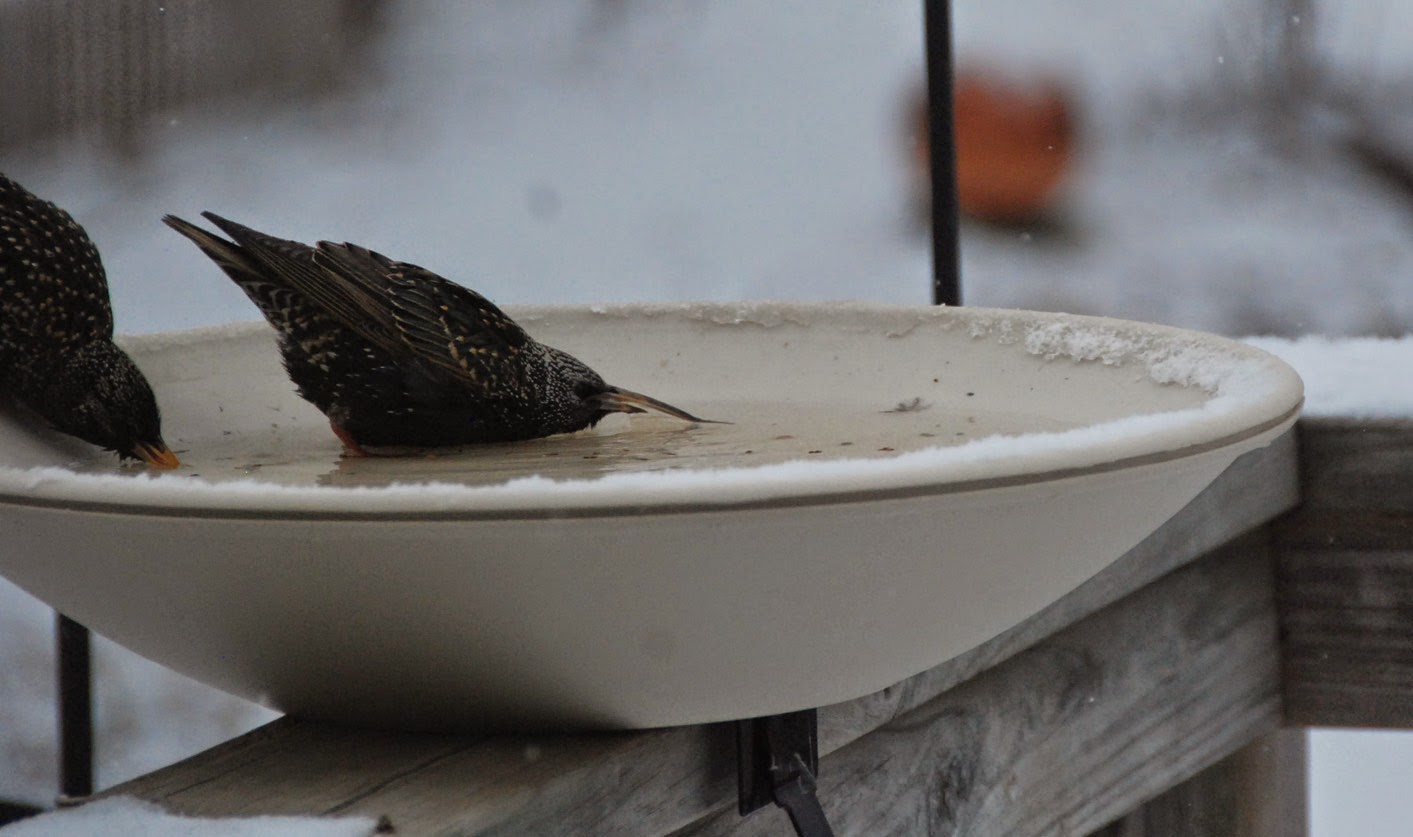It has amazed me how many bird deformities I've seen in our yard over the last 8 years. Some I've shared on this blog. Mainly beak deformities, but also color changes like the piebald cardinal I've seen this winter and the "yellow breasted" red-winged blackbird I saw several years ago.
At the end of February, another beak deformity showed up. This time it was a starling that I noticed drinking during a snowstorm.
I am presuming that this is a case of a beak malocclusion - which results in the upper mandible (in this case) not being automatically trimmed as it closes against the lower mandible.
As with so many genetic abnormalities, this one is not a good change from normal. Note how wet the feathers down the front of this individual are?
That's because it has to drink by almost immersing itself in water and skewing its body sideways, as in this picture. I presume it has to eat this way, too.
Compared to the "normal way" a starling would eat and drink, shown by the bird on the left, this deformed starling has to work much harder for both calories and water. As the top mandible grows longer, it will get harder and harder for this individual to get what it needs. It also can't be good for this bird to get this wet during cold weather. Presumably, eventually, it will weaken and die, perhaps becoming food for a predator of some sort.
Seeing individuals like this always makes me sad...but, at the same time, I have to admire them for their bravery and persistence in the face of difficulty. As beautiful as life is overall, sometimes it seems starkly hard and cruel. I just try to remember how often things go right, rather than how awful it is when they go wrong....
Tuesday, March 17, 2015
Subscribe to:
Post Comments (Atom)




2 comments:
I've not noticed anything like that. I'm probably not as observant. Poor bird!
Ah. That is so sad. It must make everything so much more difficult. Other people have noticed what seems to be an increase in beak deformities across many species and big areas.
Post a Comment